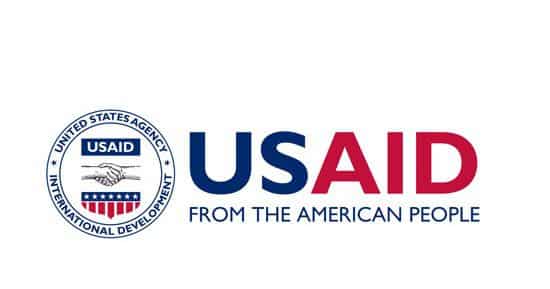BANGKOK, Thailand – The United States Agency for International Development (USAID) Green Invest Asia project and Global Coffee Platform convened experts for an April 28 webinar on how technology, from farm-based applications to satellite-powered geospatial data, can facilitate carbon accounting and monitoring in support of a carbon-neutral coffee sector.
Panelists weighed the merits and limits of existing technologies to measure and mitigate carbon emissions from coffee cultivation. The experts represented Nestlé; the coffee sustainability certification label 4C Services; Koltiva, which digitizes and verifies global supply chains, and the sustainability consulting firm Agri-Logic.
A second panel explored the use of geospatial data gathered remotely, also called remote-sensing, and included Spatial Informatics Group , Carbon Space (a satellite-powered platform for carbon tracking), the non-profit SNV Netherlands and OFI, also known as Olam Food Ingredients.
Stefan Canz, the Global Farmer Connect Manager for Coffee and Cocoa at Nestlé, called for more precompetitive collaboration in the coffee sector. “The secondary data we have used in the past for the lifecycle analysis, etc, is not robust enough to really understand what is the real impact at the farm level. So there is no other way than really going to the farm assessing the real carbon footprint on the farm.” For Canz, the priority is for industry players to develop jointly a precompetitive common methodology that can compare data from different origins.
Nestlé and JDE Peet’s, the world’s top two coffee roasters by volume, recently launched a USAID Green Invest Asia-brokered partnership that includes 10 of their coffee suppliers in Vietnam and Indonesia to establish a carbon baseline measurement of Robusta coffee production in those two countries. The resulting open-source greenhouse gas emissions benchmark—calculated from standardized data collected from suppliers and partners—aims to be the first standardized method to assess emissions by and for the coffee sector in Southeast Asia.
“Boots on the ground” were often cited as a necessary complement to digital solutions, considering how on average, less than a quarter of farmers have smart phones to benefit from phone-based monitoring applications. “So we can build in artificial intelligence, machine learning, satellite monitoring, but ground truthing is still the way forward for now,” said Manfred Borer, CEO of Koltiva, which uses field evaluations from agronomists to verify farmer-inputted data.
A measurement tool is as good as what it measures, said Gustavo Bacchi, System Director for 4C Services. “Technology in my view, it’s not a bottleneck anymore…The issue is how to put reliable information into those systems to have reliable conclusions and recommendations.”
4C Services has developed the 4C Carbon Footprint Add-on, which provides a methodology to calculate, verify and reduce GHG emissions in coffee supply chains, from agricultural production to coffee roasting. In addition to the core 4C certification, not only carbon emission reductions are covered but also social, economic and environmental criteria.
Canz from Nestlé challenged participants to better analyze data. “How are we connecting the dots? … What is the impact of bringing the carbon footprint down through cover crops, through shape management, through improved fertilization? What will be the impact on the soil?”
Karis Tenneson, Director of the Environmental Mapping Domain at Spatial Informatics Group (SIG) shared how her group has combined farm-level information with remote-sensing data to forecast yields and productivity based on information that can be monitored, including precipitation and temperatures. SIG supported a 2021 USAID-funded study that paired remote sensing with farmer-level data to determine the primary crops, including coffee, that have replaced natural forests in seven Southeast Asian countries, and calculated the change in carbon associated with those conversions. The study’s authors shared implications for sustainable agricultural expansion with commodity producers and buyers.
In closing remarks, Harm van Oudenhoven, Indonesia Manager for Hanns R. Neumann Stiftung, a non-profit that works with smallholder coffee farmers, shared how he had been in and out of the sustainability debate for the last 15 years. “And if I look back 15 years how reluctantly all these actors came to the table and started talking to each other. Compared to today, it’s an amazing change.”
The next webinar is scheduled take place in June 2022 on low-carbon coffee production basics, and GHG accounting methodologies. For more information, please contact Nichapat Na Thalang, USAID Green Invest Asia’s Partnerships and Sustainability Manager at nnathalang@pactworld.org.
All event recordings are available here.










